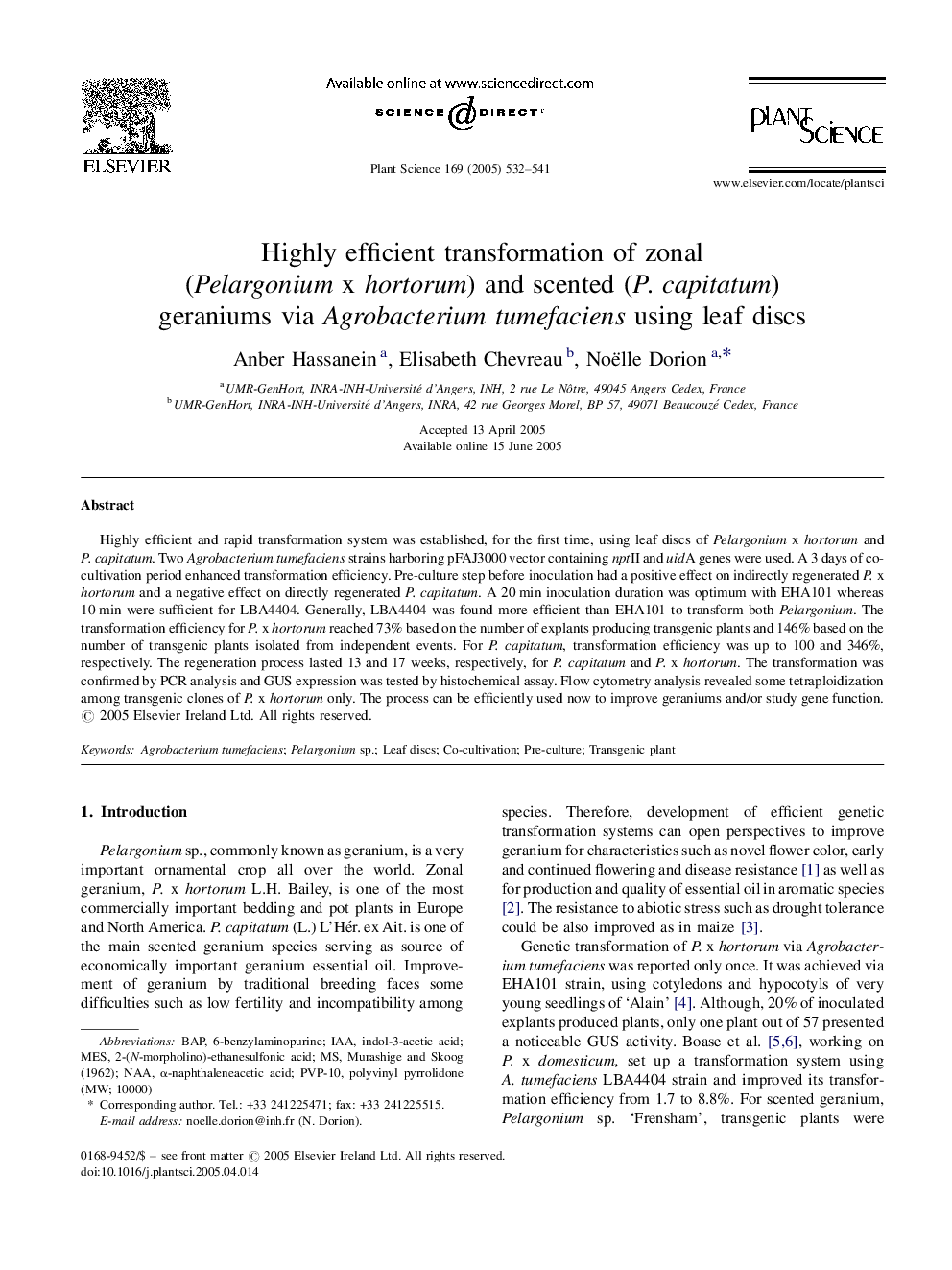| Article ID | Journal | Published Year | Pages | File Type |
|---|---|---|---|---|
| 10841049 | Plant Science | 2005 | 10 Pages |
Abstract
Highly efficient and rapid transformation system was established, for the first time, using leaf discs of Pelargonium x hortorum and P. capitatum. Two Agrobacterium tumefaciens strains harboring pFAJ3000 vector containing nptII and uidA genes were used. A 3 days of co-cultivation period enhanced transformation efficiency. Pre-culture step before inoculation had a positive effect on indirectly regenerated P. x hortorum and a negative effect on directly regenerated P. capitatum. A 20Â min inoculation duration was optimum with EHA101 whereas 10Â min were sufficient for LBA4404. Generally, LBA4404 was found more efficient than EHA101 to transform both Pelargonium. The transformation efficiency for P. x hortorum reached 73% based on the number of explants producing transgenic plants and 146% based on the number of transgenic plants isolated from independent events. For P. capitatum, transformation efficiency was up to 100 and 346%, respectively. The regeneration process lasted 13 and 17 weeks, respectively, for P. capitatum and P. x hortorum. The transformation was confirmed by PCR analysis and GUS expression was tested by histochemical assay. Flow cytometry analysis revealed some tetraploidization among transgenic clones of P. x hortorum only. The process can be efficiently used now to improve geraniums and/or study gene function.
Keywords
Related Topics
Life Sciences
Agricultural and Biological Sciences
Plant Science
Authors
Anber Hassanein, Elisabeth Chevreau, Noëlle Dorion,
